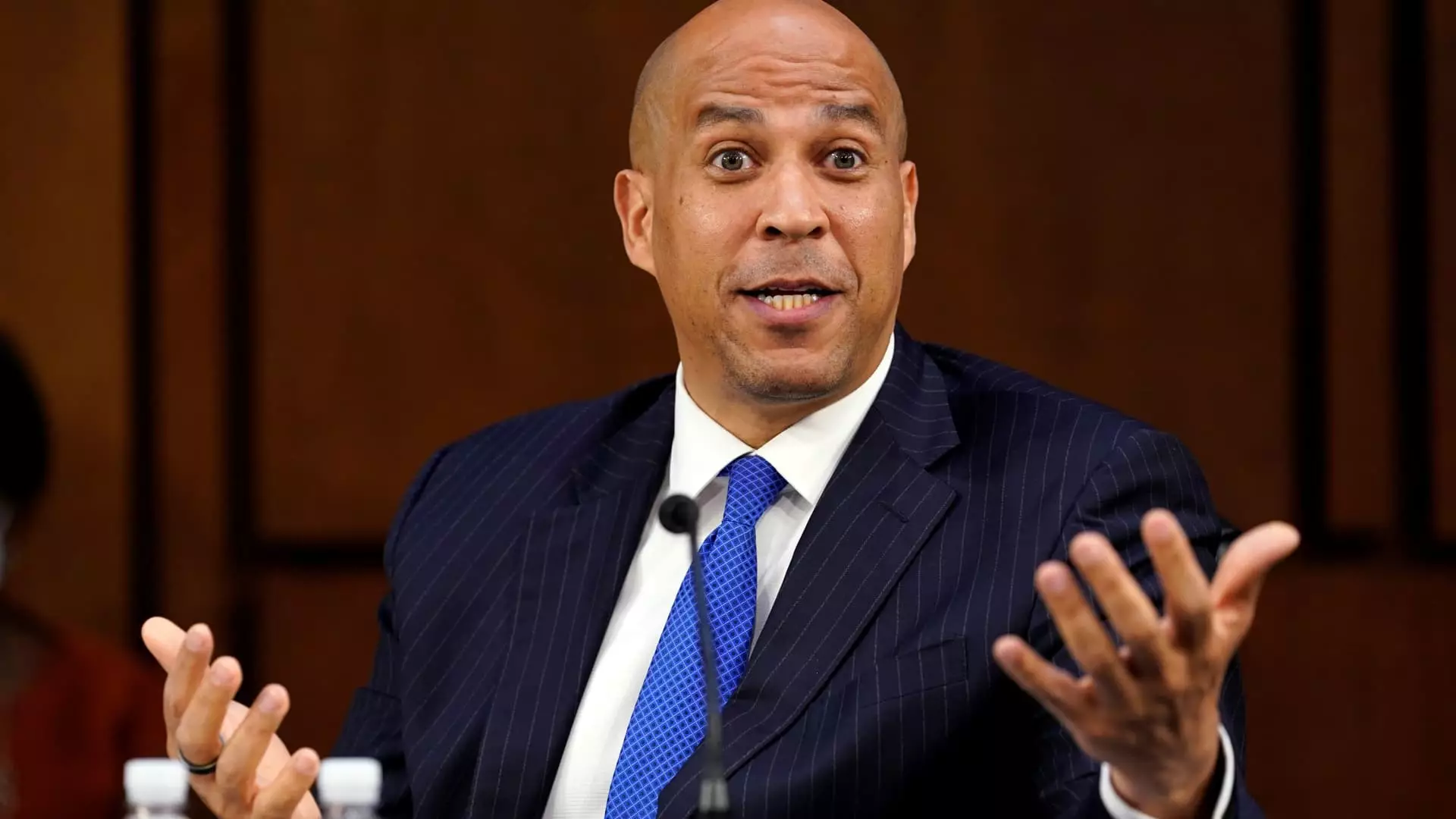In the maelstrom of American politics, few battles echo louder than the contention between Democrats and Republicans over fiscal policy and corporate ethics. Recently, Senator Cory Booker illuminated this conflict by firmly rejecting campaign contributions from tech mogul Elon Musk. His stance not only marks a significant moment in the evolving relationship between big tech and politics but also showcases Booker’s commitment to prioritizing public interest over corporate sponsorship. In a landscape increasingly riddled with conflicts of interest, Booker’s stand against Musk reflects a deeper sentiment: the pressing need for transparency and integrity in the political sphere.
The Significance of Booker’s Rejection
Senator Booker made headlines during a segment on NBC News’ “Meet the Press,” where he articulated a vital point: accepting financial contributions from figures like Musk could jeopardize the credibility of Democrats’ fighting stance against detrimental legislation. This affirmation that he would not accept Musk’s funding — despite the latter’s influential status — signifies a courageous leap toward reclaiming the narrative that politics should be for the people, driven by their needs rather than the whims of billionaires. His call for Musk to take “a more substantive approach” in opposing the GOP’s nefarious spending bill reinforces a profound truth in political discourse: action is more impactful than mere rhetoric.
Musk’s Role in the Political Landscape
Musk’s volatile social media presence has placed him at the forefront of the political conversation, for better or worse. His allure as a billionaire tech titan brings influence, but also demands a moral responsibility when his words and actions resonate through the corridors of power. Musk’s characterization of the GOP spending bill as a “disgusting abomination” reflects his frustrated alignment with certain progressive values, yet his ultimate allegiance remains unclear. Instead of holstering his power for personal gain or to settle feuds, Musk should channel his resources toward constructive political engagement. For instance, positively shaping public opinion about crucial legislation should be his priority, not retorting with incendiary tweets aimed at disgraced politicians.
Empowering Voices of Reason in a Polarized Climate
Interestingly, Representative Ro Khanna’s perspective on welcoming Musk into the Democratic fold is a reminder of the complex relationships that define modern American politics. While it is crucial to engage individuals from diverse ideologies, the question remains: at what cost? Should the Democratic Party absorb corporations and individuals based purely on their financial clout, or should it dig deeper into the ideological congruence and public commitment these actors showcase?
Senator Booker’s challenge to Musk is not a dismissal of the potential Musk represents as a political ally; it beckons a responsible collaboration that transcends petty disputes and focuses on the real implications of political decisions. In a country teetering on the edge of socio-economic upheaval, transparency and genuine intentions should guide all partisan alliances.
Dangers Lurking Beneath the Surface
As we analyze the “One Big Beautiful Bill Act,” it’s essential to dissect its ramifications. Promoting tax cuts while simultaneously cutting vital services can have catastrophic repercussions for everyday Americans, particularly for the most vulnerable populations—those reliant on Medicaid and food stamps. This stark duality raises a pivotal inquiry about who benefits from such legislation. Is it geared toward the American populace, or does it amplify the wealth of a select few? These questions linger ominously as lawmakers like Booker fight to clarify these policies’ true objectives. It is the duty of political representatives to ensure grassroots voices remain at the forefront, voicing concerns that corporate interests often drown out.
Ultimately, the American political landscape demands more accountability. As we grapple with profound issues like fiscal policy and corporate power, figures like Senator Booker who challenge the status quo offer a glimmer of hope. The insistence that political actors prioritize ethical over fiscal motivations is a bold stance that resonates in this critical moment of change. Respecting the voices of constituents is paramount—it must triumph over the coercive allure of corporate funding and influence. In the end, the future of democracy may depend on it.

Leave a Reply